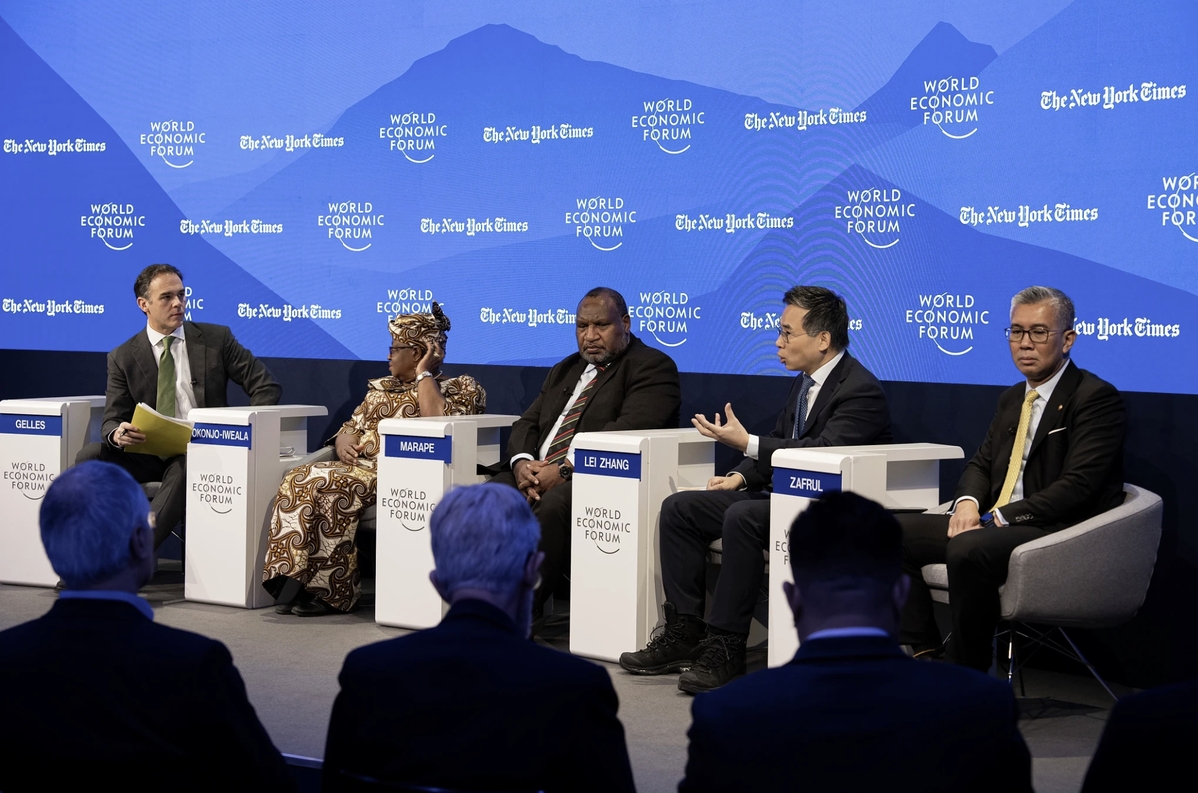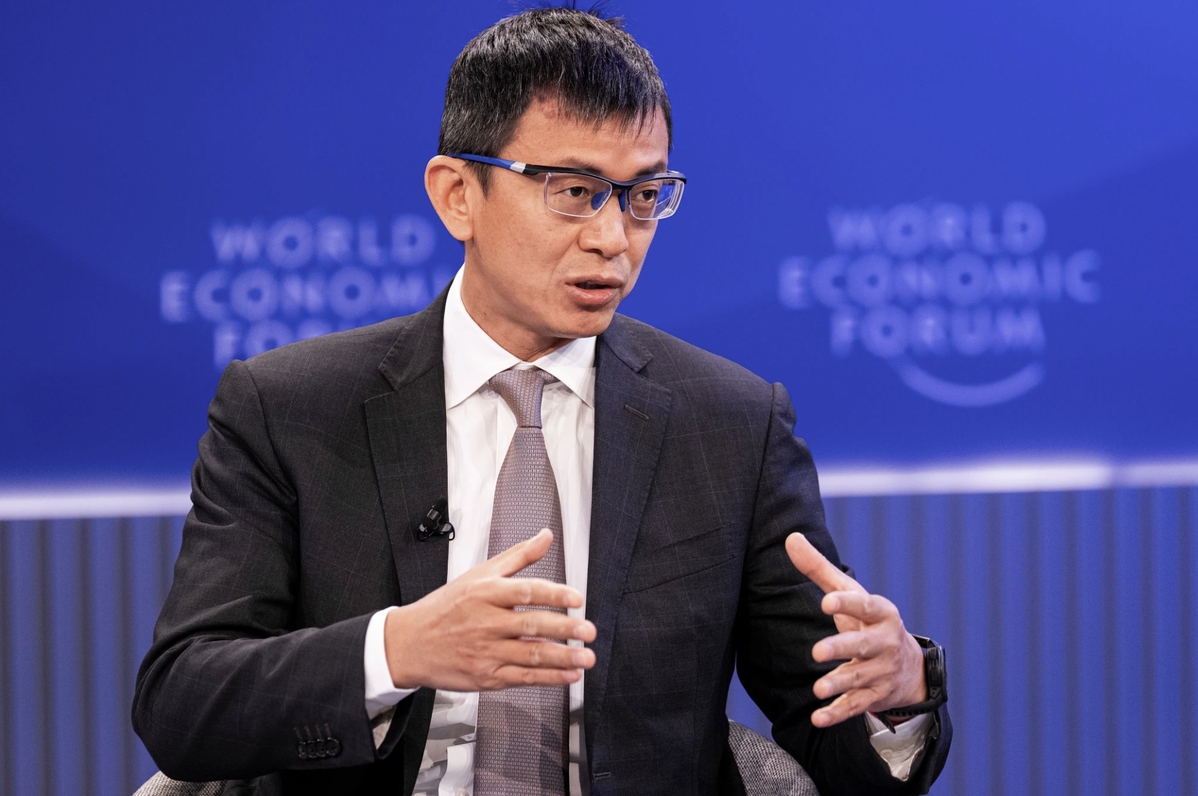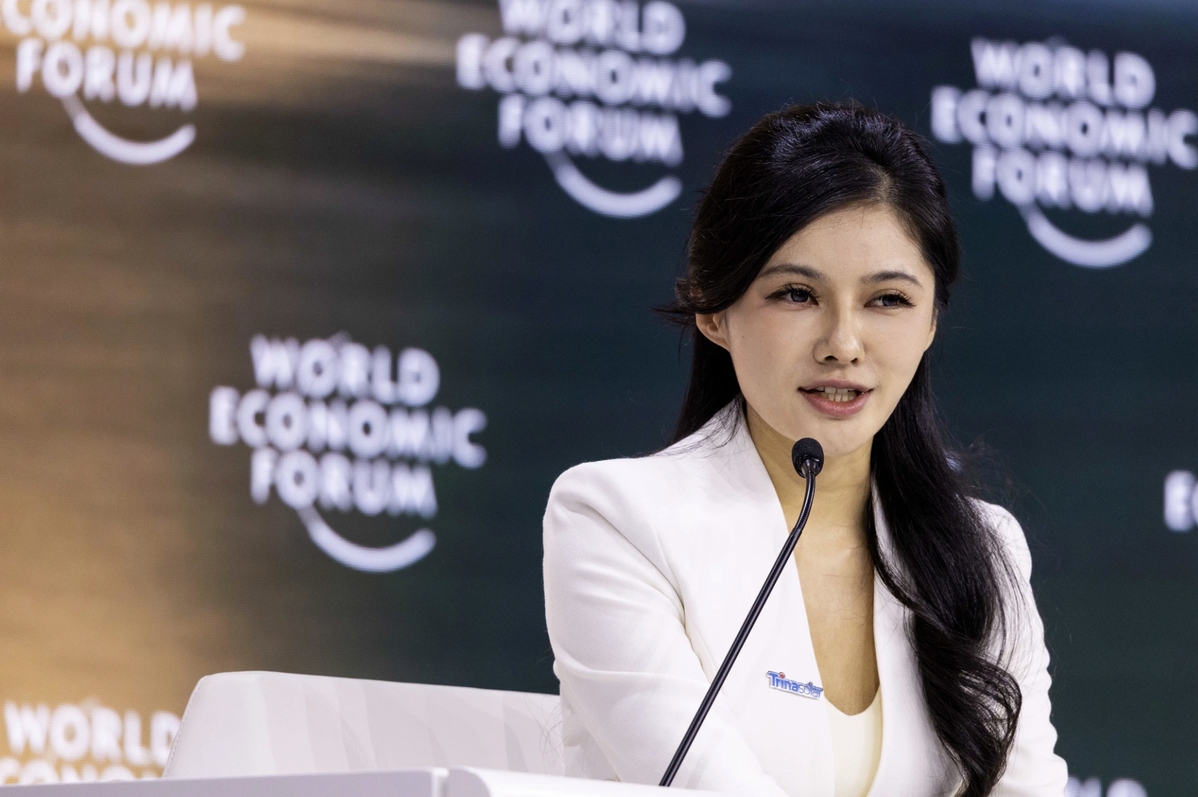Business leaders of Chinese new energy companies, including CATL, Envision, and Trina Solar, called for a green transition of the world economy, emphasizing the diffusion of technology and supply chains will not only contribute to combating climate change but also bring inclusive growth.
They made the remarks at the annual meeting of the World Economic Forum in Davos, Switzerland, this week, which was overshadowed by rising protectionism and the retreat of the United States from the Paris Agreement again.

Zhang Lei, CEO of Envision, speaks at a panel discussion during the World Economic Forum annual meeting for 2025 in Davos, Switzerland. [Photo / World Economic Forum]
At the panel "Squaring the Climate-Trade Circle", Zhang Lei, CEO of Envision, one of China's leading wind turbine manufacturers, said, "Trade is enabling energy transition, and at the same time the transition is also redefining global trade and supply chains. This reorganization is creating so many opportunities, particularly for developing countries. It's going to be a path to new prosperity."
Zhang said in the next decade people probably will see the emergence of many new trading hubs, with places like Morocco producing green ammonia, Brazil becoming a center for sustainable aviation fuel, and Australia, which now mainly exports iron ore, leveraging its renewable energy resources to produce hydrogen, and then make green steel.
"This new trade will create new trading hubs, behind which will be new industrial clusters and new business ecosystems," he said, explaining that countries like Papua New Guinea with abundant biogenic carbon could become an ideal place to build net-zero parks for sustainable green methanol, a promising shipping fuel. It can be sent to Singapore, the global logistics hub, to decarbonize global maritime trade.
'Just, inclusive'
"We strongly believe this transition will be a just, inclusive transition, and an opportunity for the locals in the developing countries," Zhang concluded.

Pan Jian, co-chairman of CATL, speaks at a panel discussion during the World Economic Forum annual meeting for 2025 in Davos, Switzerland. [Photo / World Economic Forum]
In the roundtable "Getting EV Supply Chain Right", Pan Jian, co-chairman of CATL, a leading battery manufacturer, responded to the misleading narrative about China's threat because of its leading position in electric vehicle supply chains.
"It is not true because it overlooks one important aspect of the story," said Pan. "If you look at the concentration of the production capacity in China, yes, it is very high along the supply chain. However, if you look at the end market, China also accounts for 70 percent of the overall EV market. We should look at the issue from both supply and demand perspectives," he said.
Citing China's EV penetration rate, which surpassed 50 percent last year, meaning that more EVs were sold in China than gasoline cars, Pan said he expects the penetration rate to continue to grow to 60 percent this year.
"With the spread of EVs in different markets, we believe the production of the supply chain will also spread to different parts of the world," he added.

Gao Haichun, co-chair of Trina Solar, speaks at a panel discussion during the World Economic Forum annual meeting for 2025 in Davos, Switzerland. [Photo / World Economic Forum]
In a meeting on "State of Climate and Nature", Gao Haichun, co-chair of Trina Solar, a Chinese photovoltaic company, shared her vision for the future development of renewable energy.
"What we need today is not only invest in solar or wind energy, but also invest in grids. We need more intelligent, decentralized and stable electricity grids for the generated renewable energy to be consumed," she said, adding examples of decentralized solar power helping businesses and families in difficult situations.
"The green transition is not only a technology story or an economic story. It's also about human dignity. It's also security. It's also an opportunity," she said.
xingyi@chinadaily.com.cn